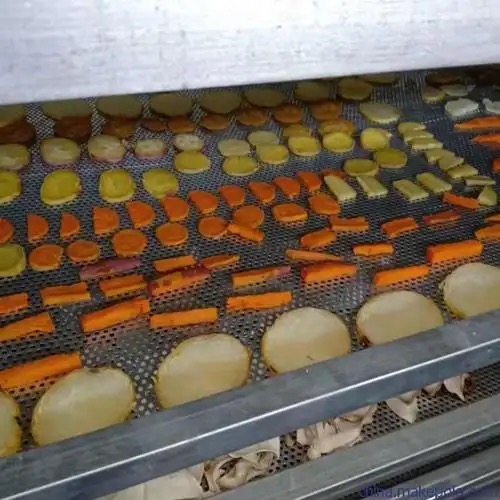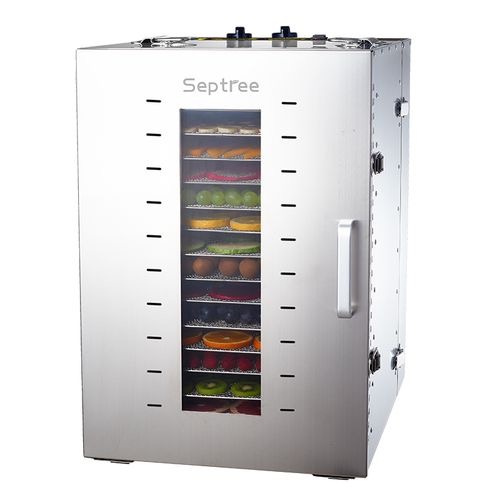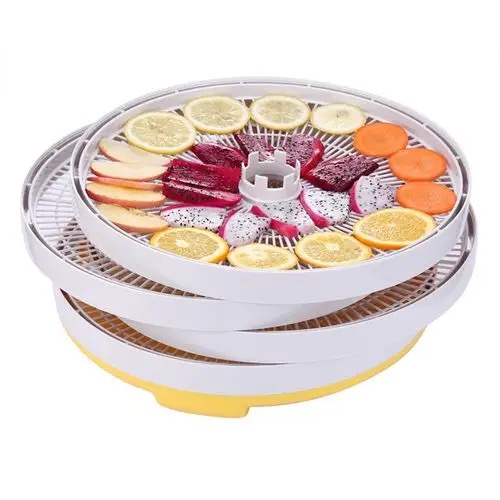
Content Menu
● Understanding Heat Pump Dryers
● Efficiency of Heat Pump Dryers
>> Energy Consumption
>> Temperature Control
>> Moisture Removal
>> Versatility
● Cost-Effectiveness of Heat Pump Dryers
>> Initial Investment
>> Operational Costs
>> Maintenance
>> Return on Investment
● Advantages of Heat Pump Dryers
● Disadvantages of Heat Pump Dryers
● Conclusion
● Frequently Asked Questions
>> 1. What is a heat pump dryer?
>> 2. How do heat pump dryers save energy?
>> 3. Can heat pump dryers be used for all types of food?
>> 4. What are the maintenance requirements for heat pump dryers?
>> 5. Are heat pump dryers worth the investment?
In the world of food processing, drying is a crucial step that significantly impacts the quality, shelf life, and safety of food products. As a leading manufacturer of food drying machines in China, we specialize in providing OEM services to international brands, wholesalers, and producers. This article will explore the efficiency and cost-effectiveness of heat pump dryers, particularly in the context of food drying, while also discussing their advantages and disadvantages compared to traditional drying methods.

Understanding Heat Pump Dryers
Heat pump dryers utilize a unique technology that allows them to efficiently dry food products by recycling heat. Unlike conventional dryers that expel hot air, heat pump dryers capture and reuse the heat generated during the drying process. This not only reduces energy consumption but also maintains a consistent drying temperature, which is essential for preserving the nutritional value and flavor of food.
Efficiency of Heat Pump Dryers
Energy Consumption
One of the most significant advantages of heat pump dryers is their energy efficiency. They consume less electricity compared to traditional dryers, making them an environmentally friendly option. This is particularly important for food manufacturers looking to reduce their carbon footprint and operational costs. The energy savings can be substantial, especially for large-scale operations that run dryers continuously.
Temperature Control
Heat pump dryers operate at lower temperatures, which helps in preserving the quality of the food being dried. High temperatures can degrade sensitive nutrients and alter the flavor profile of food products. By maintaining a stable drying environment, heat pump dryers ensure that the food retains its original characteristics. This is especially beneficial for delicate items like herbs and fruits, which can lose their potency and taste when exposed to excessive heat.
Moisture Removal
The ability of heat pump dryers to remove moisture effectively is another key factor in their efficiency. They can achieve a high level of moisture extraction without compromising the quality of the food. This is particularly beneficial for products like fruits, vegetables, and herbs, which require careful handling during the drying process. The efficient moisture removal also helps in preventing spoilage and extending the shelf life of the products.
Versatility
Heat pump dryers can be used for a wide range of food products, from fruits and vegetables to meats and fish. This versatility makes them an ideal choice for food manufacturers who need a reliable drying solution for various products. The adaptability of heat pump dryers allows manufacturers to diversify their product offerings without investing in multiple drying systems.

Cost-Effectiveness of Heat Pump Dryers
Initial Investment
While the initial cost of purchasing a heat pump dryer may be higher than that of traditional dryers, the long-term savings in energy costs can offset this investment. Food manufacturers should consider the total cost of ownership, which includes energy consumption, maintenance, and operational efficiency. The upfront investment can be a barrier for some, but the financial benefits over time can make heat pump dryers a more attractive option.
Operational Costs
Heat pump dryers typically have lower operational costs due to their energy efficiency. This is particularly important for large-scale food processing operations where energy expenses can significantly impact the bottom line. By reducing energy consumption, manufacturers can improve their profit margins. Additionally, the reduced need for frequent maintenance and repairs contributes to lower operational costs.
Maintenance
Heat pump dryers require less maintenance compared to traditional dryers. Their closed-loop system minimizes wear and tear, leading to lower maintenance costs over time. This reliability is crucial for food manufacturers who rely on consistent performance to meet production demands. Regular maintenance checks can further enhance the longevity and efficiency of the dryers, ensuring they operate at optimal levels.
Return on Investment
The combination of lower energy costs and reduced maintenance expenses makes heat pump dryers a smart investment for food manufacturers. Over time, the savings can lead to a substantial return on investment, making them a financially viable option. Manufacturers can reinvest these savings into other areas of their business, such as product development or marketing.
Advantages of Heat Pump Dryers
1. Energy Efficiency: As mentioned earlier, heat pump dryers are highly energy-efficient, which is a significant advantage for food manufacturers looking to reduce their energy consumption.
2. Quality Preservation: The ability to maintain lower drying temperatures helps preserve the quality of food products, ensuring that they retain their nutritional value and flavor.
3. Environmentally Friendly: By reducing energy consumption and minimizing waste, heat pump dryers are a more sustainable option for food processing.
4. Versatile Applications: Heat pump dryers can be used for a variety of food products, making them a flexible solution for manufacturers.
5. Reduced Carbon Footprint: The energy-efficient operation of heat pump dryers contributes to a lower carbon footprint, aligning with global sustainability goals.
Disadvantages of Heat Pump Dryers
1. Higher Initial Cost: The upfront cost of heat pump dryers can be a barrier for some manufacturers, particularly smaller operations with limited budgets.
2. Longer Drying Times: While heat pump dryers are efficient, they may have longer drying times compared to traditional dryers. This can be a consideration for manufacturers with tight production schedules.
3. Complexity: The technology behind heat pump dryers can be more complex than traditional drying methods, which may require specialized training for operators.
4. Limited Availability: In some regions, heat pump dryers may not be as readily available as traditional dryers, which can limit options for manufacturers.
Conclusion
In conclusion, heat pump dryers offer a range of benefits for food manufacturers, including energy efficiency, quality preservation, and versatility. While the initial investment may be higher, the long-term savings in operational costs and maintenance make them a cost-effective solution for food drying. As the demand for sustainable and efficient food processing solutions continues to grow, heat pump dryers are likely to play an increasingly important role in the industry.

Frequently Asked Questions
1. What is a heat pump dryer?
A heat pump dryer is a type of drying machine that uses a heat pump to recycle heat and efficiently dry food products while maintaining low temperatures.
2. How do heat pump dryers save energy?
Heat pump dryers save energy by capturing and reusing heat generated during the drying process, resulting in lower electricity consumption compared to traditional dryers.
3. Can heat pump dryers be used for all types of food?
Yes, heat pump dryers are versatile and can be used for a wide range of food products, including fruits, vegetables, meats, and herbs.
4. What are the maintenance requirements for heat pump dryers?
Heat pump dryers require less maintenance than traditional dryers due to their closed-loop system, which minimizes wear and tear.
5. Are heat pump dryers worth the investment?
Yes, despite a higher initial cost, heat pump dryers can lead to significant long-term savings in energy and maintenance costs, making them a worthwhile investment for food manufacturers.












